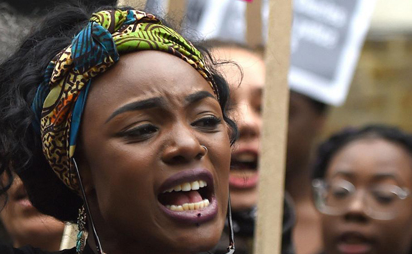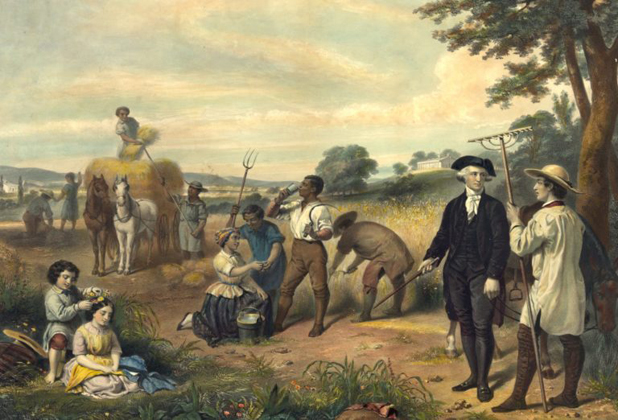Meet Adebola Lamuye, the woman pictured above.
Adebola is an African woman who lives in her native Eritrea. Some of her traumatic childhood memories include witnessing rival tribes abducting her siblings during nightfall, albino Africans being harvested for witchcraft ingredients, and babies being raped to cure AIDS.
Even to this day, she continues to starve in a continent defined by poverty, bloodshed and cannibalism.
Lol j/k, Adebola Lamuye is actually a journalist from the UK. And like most Blacks born in prosperous White countries, she is both oblivious to the suffering that her ancestors endured in their natives lands, and ungrateful to the White benefactors that rescued her from a similar fate.
This uppity Negress published an article recently. Her bone of contention?
The term “person of color” is too offensive.
Let’s get one thing straight. I am an African woman. I am not a “person of colour”.
Martin Luther King Jr coined “citizens of colour” in his 1963 “I Have a Dream” speech, and later the term became popular with justice activists in the 80s. But the phrase’s origin dates back further than the civil rights era. In 1807 the Act Prohibiting Importation of Slaves, a federal law that stated no new slaves were permitted to be imported into any port or place within the jurisdiction of the US, describes slaves as “any negro, mulatto, or person of colour”. That’s right: “person of colour” is a term to describe slaves.
…
The fact that us “non-whites” are lumped together into some absurd category of being “people of colour” further reinforces whiteness as the norm. It strips away our individual experiences, and instead decides the colour of our skin is what’s relevant.
There’s also another reason why this term is so distasteful when it is specifically used to describe black people. When I am called a “person of colour”, what I hear is being called a “coloured person” – a phrase that has only recently slipped out of common parlance. Apart from the N word, it is one of the most offensive terms used to describe a black person.
You know, whenever I read articles like this one, in which spoiled Third World Negroes whine about First World problems, I often wonder how those Negroes would act if they were slaves.
A lot better, I imagine.
There’s a scene in Tarantino’s Django Unchained in which the slavemaster character, played by Leonardo DiCaprio, informs Django – a nigger who’s forgotten his place – about the subservient nature of Blacks.
Though Tarantino attempts to make the slavemaster look ignorant by basing his argument on the “discredited” science of phrenology, his message is true: Blacks are a submissive race who were happier in the West as slaves than as freemen – provided that the slavemasters were benevolent, of course, as White ones usually were.
Looks comfy af to be honest.
Adebola is acting out not just because she is spoiled by prosperity and Jewish programming, but because her kind are unable to handle freedom in an advanced civilization. Like feminists, these Blacks subconsciously want to be put back in line.
Obviously, we’re no longer in a position where enslaving Blacks in any White country, especially those that had no history of it, would be a good idea. Blacks simply need to go back to Africa and stay there.
But their evolution as slaves does help us understand their ridiculous, out-of-control behavior in the “free” Western world.



